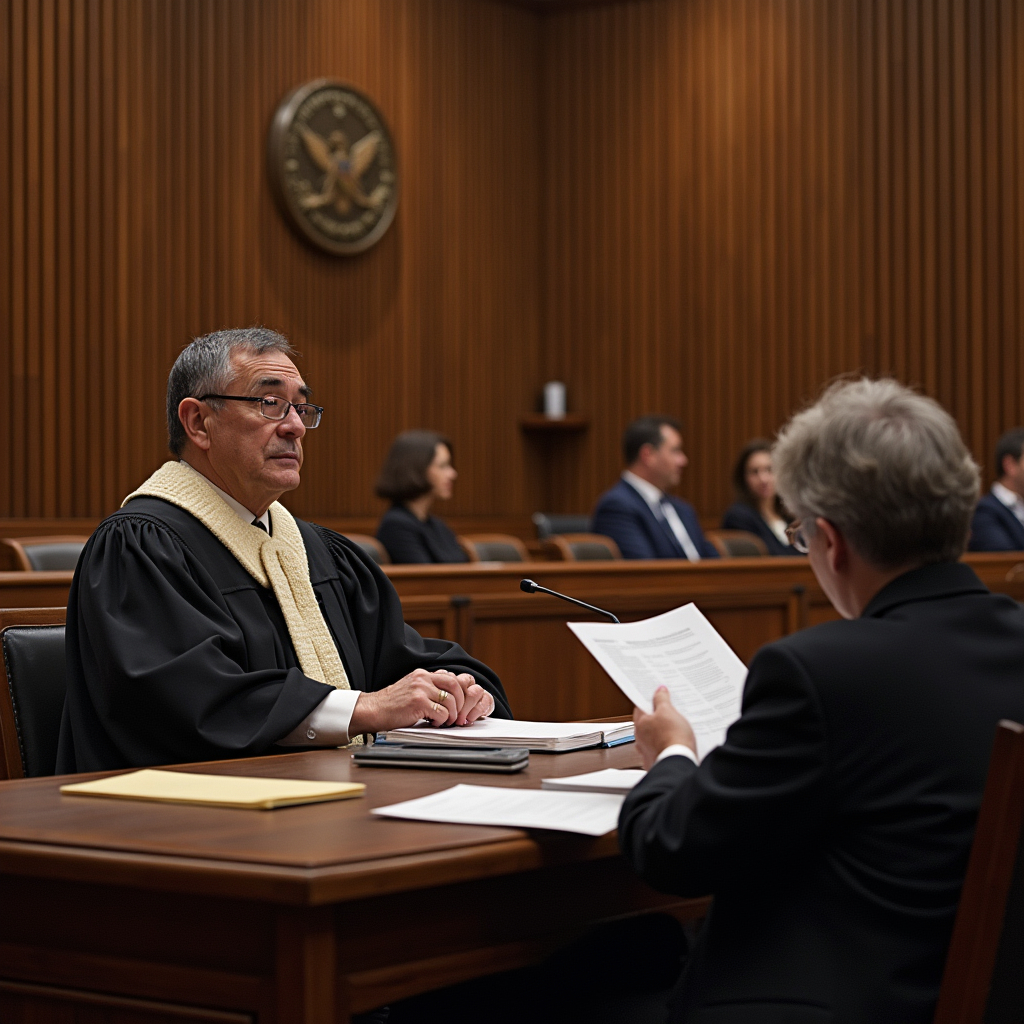This article has been written by Soumyadutta Shyam. This article explains Section 194K of the Income Tax Act, 1961 and discusses in detail various aspects of the provision. This article explains how tax is deducted from income with respect to units of mutual funds. This article also mentions how tax is deducted from income received from units from administrators or from the specified undertaking. The article also discusses, in brief, Section 10(23D) of the Income Tax Act, 1961, the concept of a mutual fund, and the Unit Trust of India. This article also examines the stipulations mentioned in Section 194K regarding suspense accounts.
Table of Contents
Introduction
Section 194K of the Income Tax Act, 1961, lays down the process for the deduction of tax on income that an investor acquires through dividends from mutual funds. This provision also deals with tax deductions from income arising out of units from the “administrator” of the “specified undertaking” or from the “specified company.” Income from capital gains is, however, excluded from the operation of this provision. The rate of deduction of the income tax in the above mentioned situations will be 10% if the income from these sources exceeds Rs. 5000/-.
Mutual fund companies providing dividends to investors can make TDS deductions at the notified rates. Persons investing in mutual funds will receive the dividend after TDS deduction on the amount. Mutual funds are a popular source of investment as well as a source of income for some taxpayers. Therefore, the income accrued to investors from the dividends of mutual funds is liable to be taxed. The deductee can use Form 16A to claim credit for the tax deducted while filing the Income Tax Return (ITR). The deductor should file Form 26Q on the TDS Reconciliation Analysis and Correction Enabling System (TRACES) Portal.
Income in respect of units
Section 194K of the Income Tax Act, 1961 lays down that, when any income is to be paid to a resident in relation to units of a mutual fund mentioned in clause (23-D) of Section 10 of the Act or units from the “administrator” of the “specified undertaking” or units from the “specified company,” the person managing the payment shall, while crediting that income to the account of the payee or at the time of the payment in cash or through the issuance of a cheque or draft, deduct income tax from that income at the rate of ten percent.
However, the deduction shall not be applicable when the sum of that income or the total sum of that income credited or paid during the financial year is not above Rs. 5000/-. Income that is in the nature of capital gains is also exempt from the operation of this provision.
Under the scheme of this provision, a person in charge of payment to a resident in relation to the following
- Units of the mutual fund under Section 10 (23D) of the Act.
- Units from the administrator of the specified undertaking.
- Units from the specified company.
The person responsible for the payment in respect of the above mentioned sources shall deduct TDS at the rate of ten percent while crediting that income to the payee’s account or at the time of the payment.
The words “administrator,” “specified undertaking,” and “specified company” have been assigned special meaning under this provision. These words have the same meaning as assigned to them under The Unit Trust of India (Transfer of Undertaking and Repeal) Act, 2002. (Referred below as “the Act”)
Section 2(a) of the Act states that “administrator” denotes a person or a body of persons designated as administrator as per Section 7. This section provides the procedure for the appointment of an administrator to control a specified undertaking.
Section 2(h) of the Act states that “specified company” denotes a company to be comprised and registered under The Companies Act, 2013, as well as whose complete capital is subscribed by such financial institutions or banks as may be notified by the Central Government for the transfer and conferring of the undertaking.
Section 2(i) of the Act states that “specified undertaking” comprises all business, assets, liabilities and properties of the trust relating to schemes and the Development Reserve Fund.
Before the introduction of this provision, dividends were taxed twice. First, a tax was levied when a company would pay a dividend to an Asset Management Company (AMC). Further, it was levied for the second time, when the AMC would distribute its profits to the unit holders.
In the 2020 budget, DDT (Dividend Distribution Tax) was abrogated. Now only AMC has to deduct TDS at 10% on the distribution of dividends, however, the dividend paid to a recipient must be above Rs. 5,000 in a financial year.

Initially, there was an uncertainty regarding whether the TDS as per Section 194K on “Income from Mutual Funds” would just involve dividends or comprise capital gains on the sale of mutual funds too. Therefore, to end this uncertainty, the Central Board of Direct Taxes (CBDT) declared recently in the year 2020 that TDS deductions at the rate of 10% would be made from dividends only and not on income from capital gains on the sale of mutual funds.
Investors residing in India acquiring dividend income from equity mutual funds will receive the amount after TDS is deducted as per Section 194K. NRI investors obtaining dividend income will receive the amount subsequent to the deduction of TDS as per Section 195 of the Income Tax Act, 1961. The deductor will send out Form 16A to the deductee as a Tax Credit Certificate for the sum deducted as TDS. This form can be used by the deductee to claim credit for the tax deducted while filing an income tax return.
Clause (23-D) of Section 10 of Income Tax Act, 1961
Section 10 of the Income Tax Act, 1961, deals with incomes that are not included while calculating the entire income of a person in the preceding year. This includes incomes from sources such as agricultural income and the share of a partner in a partnership firm that is separately assessed, leave travel allowance, long-term capital gains by selling equity shares of an equity-based mutual fund, amounts received from an insurance policy, etc. This provision lists the exemptions and the terms on which such exemptions may be granted. Clause 23D of this section provides for an exemption from income from mutual funds registered as per the Securities and Exchange Board of India Act, 1992, or issued by a public sector bank or public financial institution.
Section 10(23D) sets out that income from notified mutual funds is excluded from income tax. Incomes arising out of these funds, like dividends, capital gains or interest, are not subject to taxation. However, this exemption can be granted only under certain conditions, which are:
- The mutual fund must be notified by the government as per the above mentioned provision.
- The mutual fund must be registered with SEBI.
UTI Mutual Fund vs. Income Tax Officer and Ors. (2012)
In UTI Mutual Fund vs. Income Tax Officer and Ors. (2012), a petition was brought as per Article 226 of the Constitution of India against the notice of demand dated 29th February, 2012, issued by the Income Tax Officer, demanding the petitioner to pay a sum of Rs. 9.63 crores as per Section 177(3) of the Act. The dispute in this case is connected to the assessment year 2009-2010. The petitioner was a trust registered with SEBI as a mutual fund. The income of the petitioner was exempt from income tax as per Section 10 (23D). A trust was constituted on 20th May, 2008, by the name of “India Corporate Loan Securitisation Trust, 2008” by IL and FS Trust Company Ltd. The purpose of setting up the trust was to securitise a loan amounting to Rs. 300 crore that was granted by a bank named “Yes Bank.” The petitioner was one of the beneficiaries of the trust. The advocate arguing for the petitioner stated that the action of the tax authority was unreasonable as the income of the petitioner was excluded from the operation of the Act as a result of the provisions of Section 10 (23D).

The Court observed that the proposition of the petitioner was that an assessment could have just been made in regard to the petitioner as the transferor of a revocable trust, in which case the income would be excluded as per Section 10 (23D). Whether the statement should be accepted is an issue that would have to be resolved during the appellate proceedings ensuing from the order of assessment.
The position before the Court was that no assessment was made against the petitioner by the Assessing Officer. Although a communication was sent on 29th February 2012 and was received by the petitioner on 12th March, 2012, the petitioner was told to pay an amount of Rs 9.63 crore. This was because the petitioner was a member of the trust and was jointly and individually liable for the demand against the trust. The Assessing Officer invoked the provisions of Section 177(3) and demanded that the petitioner pay the above mentioned amount as its share of the demand for investment made by the petitioner. When legal remedies are available to an assessee to challenge a demand, there is no need to resort to coercive measures.

The assessee in this case had an issue regarding the legitimacy of the demand, which was made on 29th February, 2012. The applicability of Section 177(3) in this matter was also contended. The Court directed the Revenue Authority not to take any coercive measures against the assessee. The Court further ordered that no steps should be taken to enforce the notice issued by the Assessing Officer on 12th March, 2012, under Section 226(3).
Bharat Bhushan Sahi, New Delhi vs. Department of Income Tax (2015)
In Bharat Bhushan Sahi, New Delhi vs. Department of Income Tax (2015), an appeal was filed to set aside the order passed by the Commissioner of Income Tax (CIT), as his income from the sale and purchase of mutual funds was treated as short term capital gain instead of business income as treated by the Assessing Officer. When an assessment of the income tax return declaring total income of Rs. 89,08,663/- was filed by the assessee, the case was subjected to inquiry, and notices were served to the assessee. The assessee showed that his income was from “capital gains” and “income from other sources.” The assessee showed a short-term capital gain of Rs. 89,80,665/- and also paid tax on it at the rate of 10%.
The assessee was also asked to provide details of dubious transactions, names of brokers, copies of accounts, etc. The assessee, upon asking, provided that the income from mutual funds/shares was made through Portfolio Management Services (PMS) from ICICI Prudential and Deutsche Bank and sale/purchase of mutual funds directly. The issue to be decided was “as to whether the sale transaction of Rs. 89,08,663/- carried out by the appellant amounts to short term capital gain or is a business income as treated by the Assessing Officer (A.O.)”
The whole investment in the sale and purchase of mutual funds/shares had been made by the assessee through Portfolio Management Services. However, mutual funds are exempt from Income Tax as per Section 10 (23D) of the Act. The officer went to make the addition of Rs. 89,80,663/- as business income for three reasons: the amount of transactions, volume and frequency were too high; exemption under Section 10 (23D) is not applicable when the transactions are made through PMS. Further, the assessee was unable to provide details of capital market transactions despite being asked to do so.
The Court noted, undoubtedly, that the investment in the sale and purchase of mutual funds/share of the amount of Rs. 48,11,715/- for 2006–07 was accepted by the tax authorities as a short-term capital gain. The Court further said that it was unimaginable why similar investments through PMS in 2007–08 under consideration had turned into business income. As the assessee was an NRI, he was not allowed to do business in India other than with the authorisation of the RBI, which was not taken. The decision of the Commissioner of Income Tax (CIT) to regard the income of the assessee as short term capital gain and not as business income was correct. Therefore, the Tribunal observed that there was no reason to interfere with the impugned order and dismissed the appeal of the tax authority.
Mutual fund
Mutual funds are a popular mode of investment. The main parties involved in the functioning of a mutual fund are the fund sponsor, the trustee of the mutual fund, the Asset Management Company (AMC), the mutual fund promoter company, and the fund managers. These funds are a type of investment fund where funds are collected from several investors. It is further invested in equities, bonds, government securities, gold and other assets by the mutual fund companies.
Companies that are authorised to establish mutual funds create Asset Management Companies (AMC), which collect money from investors, market mutual funds, supervise investments and oversee investor transactions. These funds are managed by financial experts called fund managers, who have knowledge and experience in managing investments. The funds are collected from investors in mutual funds and invested in a diverse array of financial assets like stocks, bonds and other assets.
In return for managing the funds, the AMC, or mutual fund company, charges a fee from the investor known as the expense ratio. Though the fee is variable, SEBI has fixed the limit for the expense ratio based on the total assets of the fund.
Mutual funds are a portfolio of investments funded by all the investors who have bought shares in the fund. When an investor purchases shares in a mutual fund, they acquire partial ownership of all the underlying assets the fund has ownership of. A fund manager supervises the portfolio, determining how to distribute money across different sectors, industries and companies based on the scheme of the fund.
The tax rate of capital gains in the case of mutual funds is decided based on the holding period and the kind of mutual fund.

According to Section 10 (23D), income from notified mutual funds is exempt from income tax. However, Section 194K says that when income is paid to a resident arising from units of a mutual fund, the person in charge of making the payment will deduct TDS from such income at the rate of 10% if the income in a financial year is above Rs. 5000/-.
Types of Income from Mutual Funds
- Dividend Income: The present income tax law taxes the dividends paid on behalf of investors by asset management companies. Under the present tax law, mutual funds must deduct TDS while issuing dividends to unit holders.
- Capital Gains: Under the present laws, capital gains are taxable in the hands of the taxpayer. If long-term capital gains from equity-orientated mutual funds exceed Rs. 1 lakh in a year, the profits are taxable at a rate of 10%. Short-term capital gains on equity-orientated mutual funds that are subject to STT are taxable at a rate of 15%. Although a mutual fund is not required to pay TDS on capital gains deriving from unitholder redemption.
Unit Trust of India
The Unit Trust of India (further referred to as “UTI”) was established in February 1964 by virtue of The Unit Trust of India Act, 1963. It is a public sector investment initiative that was formed with the aim of encouraging and mobilising the savings of Indian citizens and channeling them into productive modes of investment.
The Unit Trust is an investment scheme where funds are collected and then invested. The fund that is collected is then unitised, i.e., divided into units representing the total value of the fund, and the investor who is a party to the unit trust is termed a unitholder, holding a particular number of units. The UTI gives the investor a secure return on their investment when they need funds.
The main aim of the UTI is to provide both small and large investors with a means of investment. It gives investors an opportunity for people to reap the benefits of the rapid industrialisation of India.
The Unit Trust of India (Transfer of Undertaking and Repeal) Act, 2002, was framed for facilitating the transfer and conferring the undertaking of the Unit Trust of India to a company to be established for the purpose. Section 3 of the Unit Trust of India (Transfer of Undertaking and Repeal) Act, 2002, provides that the initial capital of the trust provided by the Development Bank, Life Insurance Corporation, the State Bank of India, and other subsidiary banks was to be transferred to the Central Government.
As per Section 10(35) of the Act, income received in relation to units from the “administrator” of the “specified undertaking” or from the “specified company” is excluded from income tax. Although, as per Section 194K of the Act, the person responsible for distributing the income in relation to units from the “administrator” of the “specified undertaking” or a “specified company” will deduct TDS at the rate of 10% at the time of payment of such income. The words “administrator,” “specified undertaking,” and “specified company” have the same meaning as assigned to them under the Unit Trust of India (Transfer of Undertaking and Repeal) Act, 2002.
Provision in relation to “Suspense Account”
Suspense accounts are accounts that are temporarily holding accounts for transactions that cannot be instantly classified. They maintain the correctness of the financial records while it is decided in which account the transaction fits. They are used for maintaining records of funds for a short period until particular issues are resolved.
All the transactions maintained in this account are “suspense” for the accountant. Therefore, accountants are required to gather more information regarding the character of these transactions to move them into their right accounts. It must be kept in mind that all transactions are temporarily recorded in this account. These transactions must be entered into their proper accounts as soon as their accuracy is determined.
Suspense accounts generally help in keeping account books organised. They make sure that all transactions are accounted for accurately in the books. If uncertain or uncategorised transactions are recorded, incorrect balances might be recorded in the account.

The explanation to Section 194K states that “Where any income as aforesaid is credited to any account, whether called a suspense account or by any other name, in the books of account of the person liable to pay such income, such crediting shall be deemed to be credit of such income to the account of the payee, and the provisions of this section shall accordingly.” This means that the stipulations of this section will also apply in the case of a suspense account. If income from any of the sources mentioned in Section 194K is credited in a suspense account or any account of such nature and it is above Rs. 5000/-, the person responsible for making the payment shall deduct 10% TDS while crediting such amount.
Conclusion
Taxes are a compulsory contribution made by residents and institutions of the country to the government. The government uses the money from this contribution for building public infrastructure and for taking welfare measures for the benefit of the citizens. In line with this, the government also levies taxes on the income of an individual, which is called “income tax.” Income tax is regulated by law and the taxation policy of the government, and in the case of India, it is governed by the Income Tax Act, 1961.
Investment funds, like mutual funds, provide investment opportunities for both small and large investors. A crucial advantage of mutual funds is their liquidity, i.e., the investor can redeem the units at any stage. Mutual funds are managed by fund managers, who are financial experts and invest wisely in different securities. With these advantages, mutual funds have risen in popularity as a mode of investment.
Section 10 (23D) of the Income Tax Act, 1961, says that income from notified mutual funds is excluded from the purview of income tax. But Section 194K lays down that when income is paid to a resident arising from units of a mutual fund, the person responsible for making the payment shall deduct TDS from such income at the rate of 10% if such income in a financial year is above Rs. 5000/-. Similarly, Section 10 (35) of the Act sets out that income received arising out of units from administrators of the specified undertaking or from a specified company is exempt from income tax. Section 194K says that, like mutual funds, income from units from administrators of the specified undertaking or a specific company will be subject to a 10% deduction of TDS at the time of payment.
Frequently Asked Questions
What is Tax Deducted at Source (TDS)?
Tax deducted at source (TDS) is tax collected by the government at the source of income. It is collected at the source where an individual’s income is generated. It is applied to salaries, commissions, interests, etc.
What is the Dividend Distribution Tax (DDT)?
Dividend Distribution Tax is a tax paid in respect of the total income of every company that pays dividends to its shareholders in a financial year. By virtue of Budget 2020, the Finance Minister abrogated the dividend distribution tax.
What is an “Asset Management Company” (AMC)?
An Asset Management Company (AMC) is a company that collects funds from investors and invests them in various investment channels such as equities, debt, gold, etc. One of the biggest advantages of AMC’s is that, since they have a larger pool of resources, they provide investors with more diversification and investing options.
What is Income Tax Return (ITR)?
Income Tax Return (ITR) is a form in which the taxpayer provides information regarding their income and tax payments to the Income Tax Department. If a person liable to pay Income Tax Returns fails to file their returns within the specified time, they shall have to pay a penalty upto Rs.10,000/- as per Section 234F of the Income Tax Act, 1961.
References
- Section 194K TDS on Dividend Income in Respect of Units of Mutual Funds (taxguru.in)
- Section 194K—Tax deduction on income from mutual fund units (cleartax.in)
- https://taxguru.in/income-tax/section-194k-tds-income-respect-units-mutual-fund-india.html
- What is Mutual Fund? | Meaning, Objectives, Features, Benefits (etmoney.com)
- Mutual Fund Taxation – How Mutual Funds Are Taxed? (cleartax.in)
Students of Lawsikho courses regularly produce writing assignments and work on practical exercises as a part of their coursework and develop themselves in real-life practical skills.
LawSikho has created a telegram group for exchanging legal knowledge, referrals, and various opportunities. You can click on this link and join:
Follow us on Instagram and subscribe to our YouTube channel for more amazing legal content.
 Serato DJ Crack 2025Serato DJ PRO Crack
Serato DJ Crack 2025Serato DJ PRO Crack










 Allow notifications
Allow notifications


